Welcome to our blog on maximizing plant health and yield through the use of all-natural high nitrogen fertilizer. In this article, we will delve into the benefits of using organic fertilizers that are rich in nitrogen, a crucial nutrient for plant development. Our aim is to provide you with comprehensive insights into how these fertilizers can significantly improve your garden’s productivity, while also being environmentally friendly. Whether you’re a seasoned gardener or a beginner, our guide will equip you with the knowledge needed to make informed choices for optimal plant growth. Stay with us as we explore the science behind high nitrogen fertilizers and share practical tips for their application.
What is High Nitrogen Organic Fertilizer?
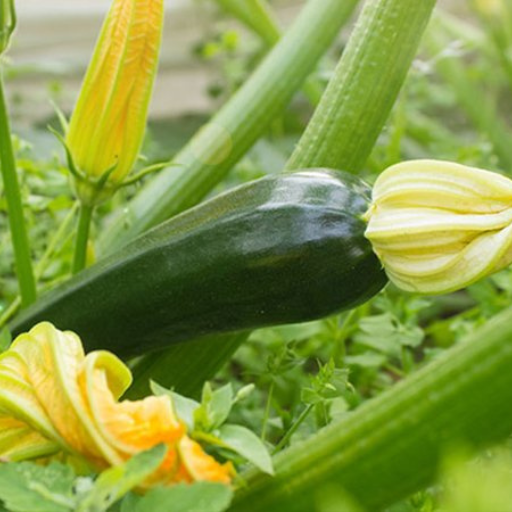
How does High Nitrogen Organic Fertilizer Work?
High nitrogen organic fertilizers simply release nitrogen slowly into the soil which is then taken up by plants for various growth processes. Chlorophyll, the molecule responsible for photosynthesis, contains nitrogen in it, a sun’s energy converting process of plants. Furthermore, amino acids are synthesized from proteins which maintain plant structure and functions like growth. The use of organic matter such as composted manure or plant residues ensures a constant supply of nitrogen through these fertilizers hence promoting strong growth and higher production without the risks of chemical leaching or soil erosion.
What is the Importance of Nitrogen in Fertilizer?
Nitrogen is very important to plants because it is one of the main ingredients in chlorophyll necessary for photosynthesis—plants turning sunlight into food. Moreover, nitrogen is also required for synthesis of proteins and amino acids that are involved in development of plant tissues as well as synthesis of enzymes. Adequate levels of Nitrogen result in lush green foliage, vigorous growth and high yields whereas limited levels lead to stunted growth, yellowing leaves and low crop produce. Therefore when nitrogen gets incorporated within postulated fertilizers then this implies that nutrients can be acquired by crops while still having good harvests.
What Types of Organic Nitrogen Fertilizers are Available?
Various options exist for organic nitrogen sources including:
- Composted Manure: This fertilizer is a balanced blend rich with significant quantities of not only nitrogen but other vital nutrients too. It releases nutrients over time thereby enhancing soil structure and water retention capacities. Usually ranging between 0.5% – 2% nitrogen content.
- Blood Meal: This fertilizer made from dried animal blood contains large amount s on average 12-15 percent Nitrogen
- Fish Emulsion: Produced from processed fish remains this type provides instant supply of Nitrogen; it might have about 5% N among other macronutrients like P & K.
- Alfalfa Meal: Ground alfalfa plants which provide nitrogen and also serve as soil conditioner. The Nitrogen level is about 2-3%.
- Cottonseed Meal: Normally at 6 to7% of the N released by this cotton waste
- Green Manure: This refers to crops or cover plants grown specifically for plowing back into the soil. For instance crops like clover and vetch can fix atmospheric nitrogen and improve fertility of soils. Nitrogen levels will vary greatly depending on the plant species used.
By knowing the various options and their nitrogen content, gardeners can select the right organic fertilizers that suit specific plants’ requirements in a garden.
How to Use High Nitrogen Organic Fertilizers?
The Best Practices for Applying Organic Nitrogen Fertilizers
Applying organic nitrogen fertilizers effectively requires attention to timing, application methods, and soil conditions.
- Timing: The application of organic nitrogen fertilizers should be done during the growing season when plants are active in nutrient uptakes. Generally, early spring and late fall are good times. Avoid applying them when there is heavy rainfall to minimize nutrient runoff.
- Application Method: Instead of spreading them on the surface, the fertilizers must be incorporated into the soil. This can be by tilling or mixing the fertilizer with a few inches of top soil to reduce loss of nutrients and enhance their accessibility by plants.
- Soil Testing: Do a soil test to determine existing nutrient levels and pH. You need this information to choose an appropriate kind and amount of organic nitrogen fertilizer. Besides, it guarantees that you don’t over-fertilize your garden resulting in nutrient imbalances and environmental problems.
- Consistent Monitoring: Observe signs of plant nutrient deficiencies or toxicities. Nitrogen shortage may present itself as yellowing leaves whereas abundant foliages can indicate excessive application of nitrogenous manure. Therefore, you should adapt your fertilizer use according to optimum plant health conditions.
By adhering to these best practices, gardeners and farmers can maximize the benefits of organic nitrogen fertilizers while promoting sustainable and environmentally friendly farming practices.
Often Should Apply High Nitrogen Fertilizers
The frequency of applying high nitrogen fertilizers depends on the specific needs of your plants and growing conditions.
Gardeners and farmers who follow these practices will benefit maximally from organic nitrogen fertilizers while enhancing sustainable environmentally sound agricultural practices.
Generally for vegetable gardens and annual plants, high nitrogen fertilizers should be applied every 4-6 weeks during the growing period. This maintains a continuous flow of nitrogen required for rapid growth and productivity in these crops.
Lawn turfs usually gain from high amounts of applied Nitrogen two to four times per year which are distributed equally throughout cropping seasons. This ensures that we have lush green grass without too much growth that might cause other maintenance issues.
In all cases, it is crucial to follow product label instructions and consider soil test results to avoid over-fertilization and potential harm to plants and the environment.
Can You Overapply Organic Nitrogen Fertilizers?
While organic nitrogen fertilizers are generally more forgiving than synthetic options, it is still possible to overapply them, leading to detrimental effects on your plants and the environment.
The Spruce emphasizes that overapplying organic nitrogen fertilizers can result in nutrient imbalances, causing lush foliage growth at the expense of fruit and flower production. Additionally, excessive nitrogen can interfere with the absorption of other essential nutrients.
Gardening Know How highlights that an overabundance of nitrogen can lead to “burning” of plant roots, hinder microbial activity in the soil, and contribute to nutrient runoff into water bodies, causing environmental pollution.
Fine Gardening points out that applying too much nitrogen can cause plants to become more susceptible to pests and diseases due to their rapid, tender growth, and can also lead to salt buildup in the soil, which can harm plant roots over time.
Therefore, it is critical to follow recommended application rates and consider soil test results to ensure that you are using the appropriate amount of organic nitrogen fertilizer for your specific gardening needs.
What are the Benefits of High Nitrogen Organic Fertilizers?
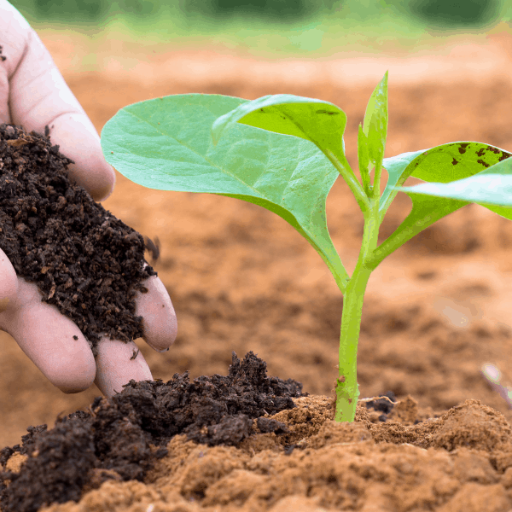
Does Organic Fertilizer Improve Soil Health?
Organic fertilizers increase important organic materials in the soil, thereby promoting a higher level of microbial activity and increasing nutrient supply and improving its structure. The Rodale Institute reveals that with the aid of organic fertilizers one can develop more healthy productive soils by encouraging microbial diversity and fostering resilient ecosystems. Mother Earth News also reports slow-release nutrients in organic fertilizers which improve water retention capacity and help control erosion thus creating an environment that fosters sustainability in farming. In sum, application of these kinds of manures leads to both immediate nutrition for plants as well as long-term soil wealth.
Why Choose Organic Rather Than Synthetic Fertilizers
Organic fertilizer is superior to synthetic ones due to some reasons for sustainable gardening. Organic fertilizer according to natural sources and decomposes slowly and gradually releasing the required nutrients needful to plants during their growth cycle. This means that there is no danger about overfeeding which sometimes accompany synthetic fertilizers under our disposal, this process instead goes on continuously release for a long period of time reducing chances of over-fertilization which are often associated with artificial manure use. Gardener’s Supply Company adds that they also enhance soil structure and promote beneficial microbes contributing to a healthier ecosystem overall. These crops have low levels of chemical run-off into the water table as well as loss through evaporation into the atmosphere making them by far better than other forms when it comes to safety around homes or gardens.
How Do They Affect Vegetation Growth
Organic fertilizers have had significant positive effects on vegetative growth because they enhance soil health over time.Others things mentioned above in The Spruce is how organic manure not only provides essential nutrients but also improves the physical condition of soils besides raising its moisture holding capacity that is important for a healthier plant life. Points out how gradual nutrient release from these manures does not cause nutrients to be washed away by rain or leached into ground water supplies but instead, they are supplied slowly and steadily to the plants thereby avoiding any risk of leaf burn. Similarly, Gardener’s Supply Company notes that organic fertilizer stimulates the growth of beneficial bacteria through promoting their proliferation in soils that nourish them as well as supplying them with essential elements like nitrogen and phosphorous. This way, plants become more vigorous and healthy resulting in less susceptibility to diseases and pests. Therefore, the use of organic fertilizers creates a condition for optimal vegetative growth.
What are the Best Sources of Organic Nitrogen?
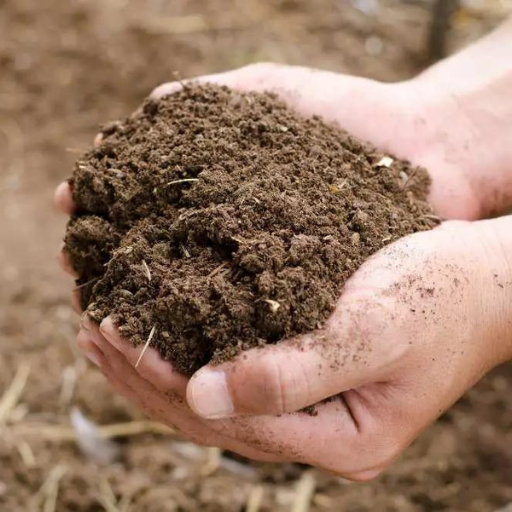
The effectiveness of blood meal as a nitrogen source
According to Garden Therapy, blood meal is highly effective as a source of nitrogen since it contains large amounts of nitrogen, about 12-15 percent. This organic fertilizer is derived from dried and powdered animal blood which is produced as byproduct in meatpacking industry hence can be considered sustainable. In addition to promoting lush green growth through quick release of nitrogen, the Old Farmer’s Almanac also points out that it deters other garden pests such as deer. Moreover, plants that require extra supply of nitrogen during the growing season benefit much from this type of manure according to Ecoscraps. Besides being used for enriching compost piles with adequate levels of nitrogen, this can help maintain balance within the system. Therefore, Blood meal acts as an efficient and multi-purpose source for nitrogen in organic farming.
Feather Meal – What Roles Does It Play?
Organic gardening relies on feather meal to provide slow-release nitrogen into the soil. Gardening Know How suggests that it usually has between 12-15% Nitrogen content when prepared from ground up poultry feathers. That makes it well-suited for long-term soil enrichment and continuous plant development throughout their growing season. As Planet Natural Research Center argues, feather meal assists in improving soil fertility by increasing its nitrogen contents while enhancing its structure at the same time. Alternatively, according to Grow Organic, feather meal plays an important role in stimulating root formation and leafy growth thereby making it a vital component of any fertilization scheme based on organics principles and practices. Thus it becomes an excellent slow-release source supplying needed amount of nitrate nutrients to support strong crops.
Reasons for choosing bat guano
For its numerous features and nutrient-rich composition bat guano is highly valued among organic gardeners world over including versatility and richness in terms of essential nutrients required by plants . According to Gardening Know How , Bat Guano provides balanced mix of Nitrogen, Phosphorus and Potassium which makes it ideal for stimulating healthy plant development. In relation to this, Dirt Doctor argues that bat guano is not only a soil enricher but also a texture improver as it enhances better aeration and drainage. Besides helping to foster the health of roots with its beneficial microbes, Dr Earth states that bat guano also works with these organisms in disintegrating dead organic material found in soils. These advantages render bat guano as an outstanding option for gardeners who want to ensure good plants’ condition and productivity without using any industrial additives.
Where to Buy High Nitrogen Organic Fertilizers?
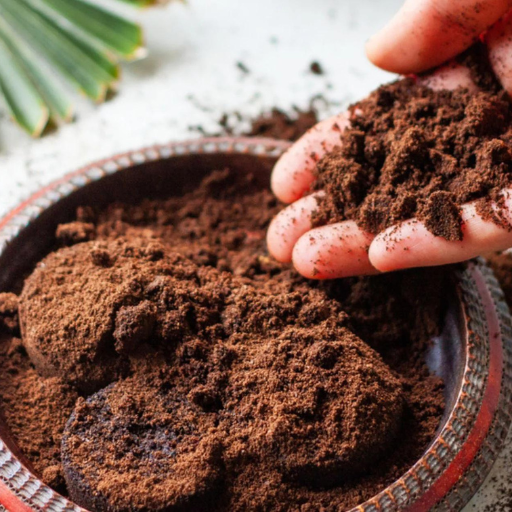
What Should You Look for When Buying 13-0-0 Fertilizer?
When buying 13-0-0 fertilizer, there are a few things I have in mind to ensure that I make the right decision for my garden. First and foremost, I consider the source of nitrogen, making sure that it is derived from high-quality organic materials since this ensures the nutrient release happens slowly and steadily. Additionally, I look at the product’s certification to confirm if it is approved for organic gardening which would be in line with my personal commitment to sustainability. Finally, I have a glimpse on how easy or difficult the packaging will be when applying it as part of ensuring my garden does not become a headache.
The Benefits of Choosing 50 Lb Bags
Serious gardeners prefer opting for 50 lb bags of fertilizer due to several reasons. The first advantage of purchasing in bulk is that it is usually cheaper than buying small amounts leading to the reduction in price per pound. This implies that I get more out of my money especially when working on large gardening projects. Moreover, having many fertilizers means fewer visits to shops thus saving me time and energy required in constant restocking too. Besides, possession lots of manure let me maintain uniformity across all my horticultural activities such as watering both outdoors and indoors throughout each season. Lastly, most fifty pounds’ bags are manufactured with a durable material considering their ability to withstand impact from moisture among other environmental conditions which contributes towards keeping their effects intact with time.
Popular Brands like SHANDONG LOYAL CHEMICAL and Dr. Earth
By offering consistently good quality products over time reputable brands like SHANDONG LOYAL CHEMICAL and Dr. Earth have earned recognition within various markets they operate upon. This has made SHANDONG LOYAL CHEMICAL known as one of the best manufacturers of fertilizers preferred by numerous professional farmers because they work well. In contrast, Dr. Earth is known for its entirely natural and organic formations which go hand in hand with sustainable gardening. The two organizations have made significant investments in research and development to ensure that their products are of the highest quality and meet all the standards. Therefore, by choosing such trusted brands, I am sure my garden will receive optimum nutrients with minimum negative impact on our environment.
Frequently Asked Questions (FAQs)
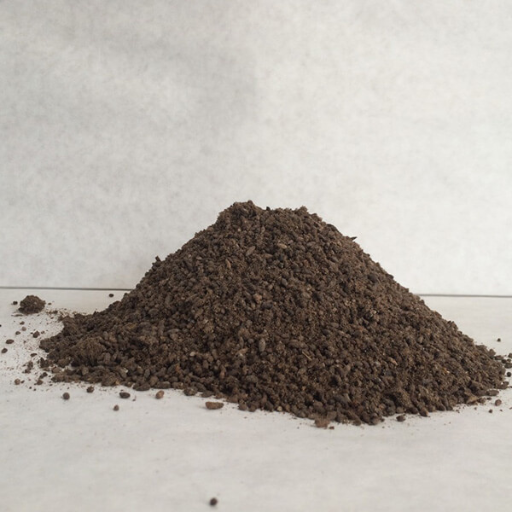
Q: All-natural high nitrogen fertilizer organic that is made of organic matter can be used for what reason?
A: It benefits by providing a natural source of rich nitrogen, which is essential for the development and well-being of plants. This form of manure promotes strong root establishment and enhances the general vitality of crops.
Q: Can I use an all-natural high nitrogen fertilizer safely on my lawn?
A: Yes, it is safe. These natural fertilizers have been designed in such a way that they will give natural nitrogen to your lawn without burns; thus, it acts as a safe option for care of your lawn.
Q: Can I use this fertilizer both for flowers and leafy greens?
A: Definitely. Therefore, such kind of purpose fertilizers could be used in different plants e.g., flowers as well as leafy greens like spinach to provide them with enough nitrogen they require to grow their best.
Q: Why is this fertilizer called “certified organic” and “OMRI listed”?
A: The soil enricher is referred to as ‘certified organic’ and ‘OMRI listed’, since it’s produced from natural ingredients and follows strict guidelines ensuring its safety for organic farming. Any products that meet these criteria are therefore said to be suitable for use in Organic agriculture.
Q: In what ways do liquid fertilizers such as fish emulsion support plant growth?
A: Thus, fish emulsion could be demonstrated through liquid manure (in form) that delivers nutrients fast. It can be applied directly into the soil where it can quickly go into the roots system hence giving the nutrient boost immediately.
Q: What does NPK ratio mean in fertilizers?
A:The ratio between NPK represents how much Nitrogen (N), Phosphorous (P), & Potassium (K) there are in the fertilizer. For balanced growth and plant health, these elements are required by Nitrogen enhance foliage growth, Phosphorus promote root development and Potassium increase the overall hardiness of the plant.






